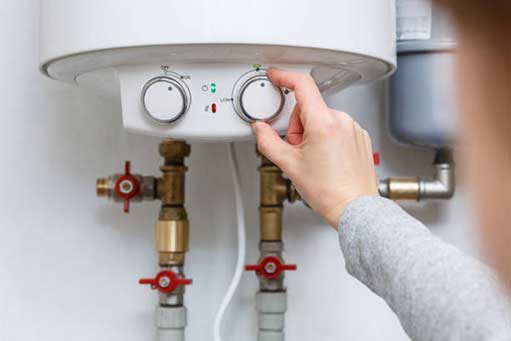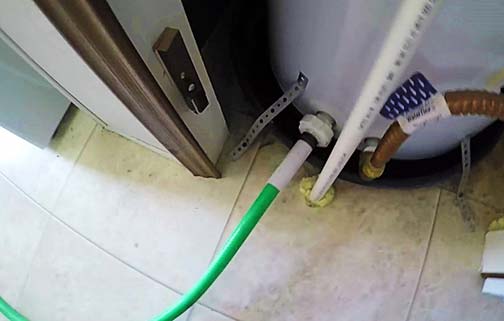
Whether you’re looking to save some money on your energy bill or extend the lifespan of your water heater, knowing when to turn it off can make a big difference. In this article, we’ll discuss the various scenarios in which you should consider turning off your water heater and provide some helpful tips along the way.
Why Should You Turn Off Your Water Heater?
Before we dive into the best times to turn off your water heater, let’s take a moment to understand why it’s beneficial to do so. Here are a few reasons:
- Energy Savings: Turning off your water heater when it’s not in use can help you save on energy costs. Water heaters are one of the biggest energy consuming appliances in most homes, so taking steps to reduce their usage can make a significant impact on your monthly bills.
- Prolonged Lifespan: By reducing the amount of time your water heater operates, you can help extend its lifespan. Over time, constant heating and reheating can wear out the components of your water heater, leading to more frequent repairs or even the need for a replacement.
- Environmental Impact: Conserving energy not only benefits your wallet but also the environment. By using less electricity or gas to heat your water, you’re reducing your carbon footprint and contributing to a greener planet.
Scenarios for Turning Off Your Water Heater
1. Vacations and Extended Absences
If you’re planning a vacation or will be away from home for an extended period, it’s a good idea to turn off your water heater. There’s no point in keeping it running and using energy when there won’t be anyone using hot water in your absence. Follow these steps to turn off your water heater:
- Locate the power supply to your water heater. This can typically be found on the circuit breaker panel in your home.
- Identify the breaker that controls your water heater and flip it to the “Off” position.
- For gas water heaters, turn off the gas supply valve by rotating it 90 degrees.
- Finally, close the water supply valve to prevent any leaks.
When you return from your vacation or extended absence, simply reverse the steps above to turn your water heater back on.
2. Seasonal Closures
If you have a seasonal property that remains unused for part of the year, such as a vacation home or cabin, you should consider turning off your water heater during the closure. This will not only reduce energy consumption but also minimize the risk of any malfunctions or leaks that may go unnoticed in your absence.
3. Home Renovations or Repairs
If you’re planning a home renovation or repair project that involves shutting off the water supply, it’s best to turn off your water heater as well. Depressurization of the water system during repairs can cause the water heater to malfunction or even become damaged. To avoid any issues, turn off the water heater before starting your project and remember to turn it back on once the repairs are complete.
4. Energy-Saving Measures
If you’re actively looking for ways to reduce your energy consumption and lower your utility bills, turning off your water heater during certain periods can be an effective strategy. Here are a few scenarios where it makes sense to turn off your water heater:
- Overnight: If you don’t use hot water during the night, consider turning off your water heater before going to bed and turning it back on in the morning.
- Peak Energy Hours: In some regions, electricity rates are higher during peak hours. By turning off your water heater during these peak periods, you can capitalize on lower energy rates and reduce your overall costs.
- Weekend Getaways: If you frequently go away for weekends and don’t require hot water during that time, turn off your water heater before leaving and turn it back on when you return.
Additional Tips and Considerations
- Insulate Your Water Heater: Consider insulating your water heater and the hot water pipes to minimize heat loss. This can help maintain the temperature for longer periods, reducing the frequency at which your water heater needs to run.
- Regular Maintenance: Performing regular maintenance on your water heater can help optimize its performance and identify any potential issues early on. Consult the manufacturer’s manual for recommended maintenance tasks and intervals.
- Seek Professional Advice: If you’re unsure about when to turn off your water heater or have any concerns about your specific situation, it’s always best to speak with a professional plumber or HVAC technician. They can provide personalized recommendations based on your needs and circumstances.
In Summary
Knowing the best times to turn off your water heater can provide numerous benefits, including energy savings, an extended lifespan for your water heater, and a reduced environmental impact. Whether you’re going on vacation, closing a seasonal property, or adopting energy-saving practices, following the tips and considerations in this guide will help you make informed decisions. Remember to always prioritize your safety and contact professionals when in doubt. Enjoy the benefits of a well-managed water heater and a more efficient home!
